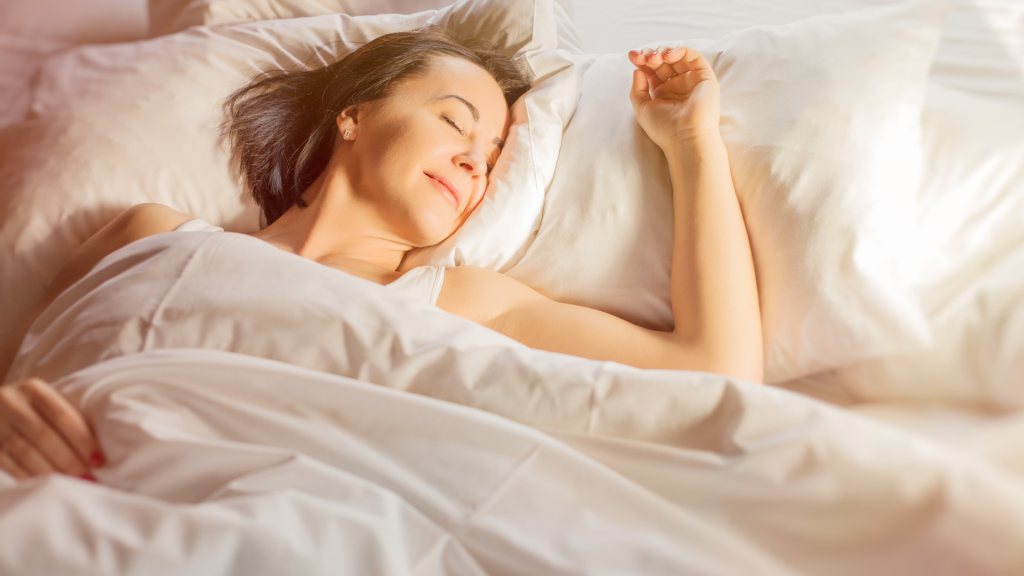
Sleep is essential for good physical and mental health. It allows your body and mind to rest and repair themselves, and it helps to improve your mood, concentration, and overall well-being.
There are many factors that can affect your sleep quality, including your mattress, bedding, accessories, and sleep aids. By choosing the right products and creating a relaxing sleep environment, you can improve your chances of getting a good night's sleep.
Mattresses
Your mattress is one of the most important factors in determining your sleep quality. A good mattress will provide support and pressure relief, which can help to reduce pain and improve your overall comfort.
When choosing a mattress, there are a few things to consider:
- Type of mattress: There are three main types of mattresses: innerspring, memory foam, and latex. Innerspring mattresses are the most common type of mattress, and they are available in a variety of firmness levels. Memory foam mattresses are known for their ability to conform to your body, and they are often recommended for people with back pain. Latex mattresses are a good choice for people who are looking for a durable and supportive mattress.
- Firmness: The firmness of your mattress is a matter of personal preference. Some people prefer a soft mattress, while others prefer a firm mattress. It is important to choose a mattress that is firm enough to support your spine, but not so firm that it causes pressure points.
- Size: Mattresses come in a variety of sizes, including twin, twin XL, full, queen, king, and California king. It is important to choose a mattress that is the right size for your bed frame and your sleeping needs.
Bedding
Your bedding can also play a role in your sleep quality. Comfortable sheets, pillows, and blankets can help you to relax and fall asleep more easily.
When choosing bedding, there are a few things to consider:
- Material: Bedding is available in a variety of materials, including cotton, flannel, microfiber, and silk. It is important to choose a material that is soft and comfortable to sleep on.
- Warmth: Bedding is also available in a variety of warmth levels. It is important to choose bedding that is appropriate for the climate you live in and the temperature of your bedroom.
- Size: Bedding comes in a variety of sizes to match the size of your mattress. It is important to choose bedding that is the right size for your bed.
Accessories
There are a number of accessories that can help to improve your sleep quality. These include:
- Eye mask: An eye mask can block out light and help you to fall asleep more easily.
- Earplugs: Earplugs can block out noise and help you to sleep more soundly.
- White noise machine: A white noise machine can create a calming sound that can help to mask other noises and improve your sleep quality.
- Weighted blanket: A weighted blanket can provide deep pressure stimulation, which can help to reduce anxiety and improve sleep quality.
Sleep Aids
There are a number of over-the-counter and prescription sleep aids that can help you to fall asleep and stay asleep. However, it is important to talk to your doctor before taking any sleep aids, as they can have side effects.
Natural sleep aids
There are a number of natural sleep aids that can help to improve your sleep quality. These include:
- Melatonin: Melatonin is a hormone that helps to regulate your sleep-wake cycle. Taking a melatonin supplement can help you to fall asleep more easily.
- Valerian root: Valerian root is an herb that has calming and sedative properties. Taking a valerian root supplement before bed can help to improve your sleep quality.
- Chamomile: Chamomile is an herb that has calming and relaxing properties. Drinking chamomile tea before bed can help you to fall asleep more easily.
By choosing the right mattress, bedding, accessories, and sleep aids, you can improve your chances of getting a good night's sleep. Sleep is essential for good physical and mental health, so it is important to invest in products and create a sleep environment that helps you to get the rest you need.
Additional tips for improving your sleep
- Establish a regular sleep schedule and stick to it as much as possible, even on weekends.
- Create a relaxing bedtime routine. This could include taking a warm bath, reading a book, or listening to calming music.
- Avoid caffeine and alcohol before bed.
- Make sure your bedroom is dark, quiet, and cool.
- Get regular exercise, but avoid exercising too close to bedtime.
- See a doctor if you have chronic insomnia or other sleep problems.
This site is devoted to helping you get a better sleep experience so you can improve your health, your mind and your morning outlook.
